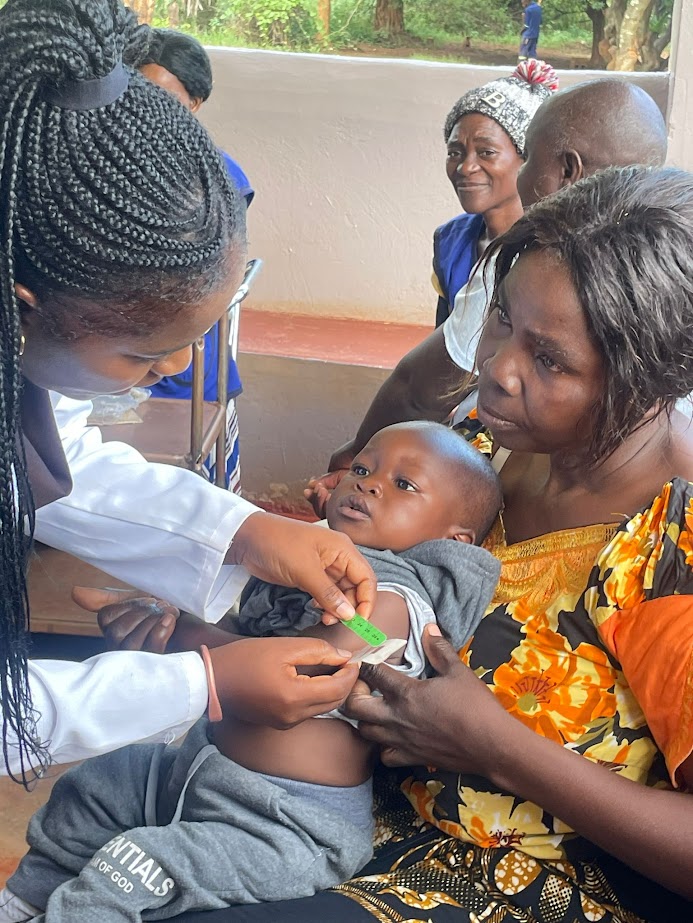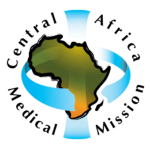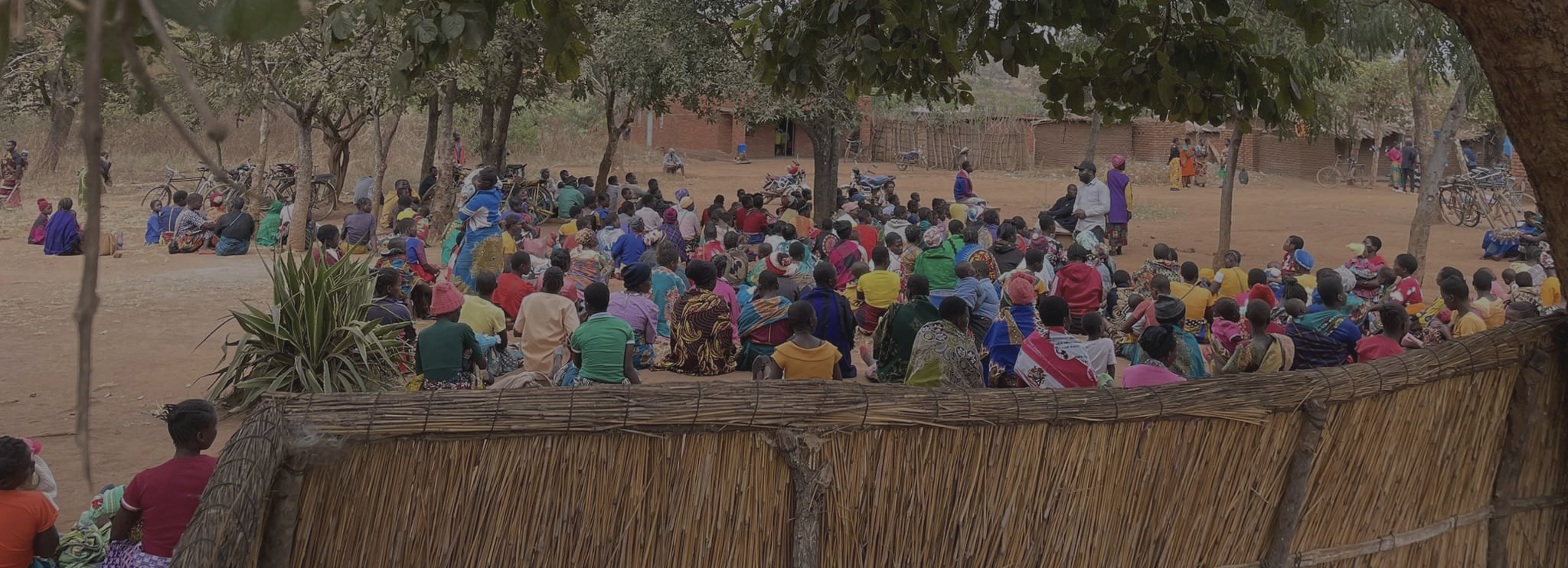14 Aug August 2025

Greetings CAMM supporters and happy August!
Our newsletter this month is written by Clinical Officer in Charge, Jackson Kalekwa. In it, he updates us on the important work that is being done regarding nutrition at the clinic in Zambia. Most of us would not be concerned about not having enough food or the nutrition we need to stay healthy, but for many in Zambia, this is a challenge. It’s a reminder for us all to find opportunities when we talk to God to fix our minds on others who may be struggling with things we might take for granted. 1 John 5:14-15 “And this is the
confidence that we have toward him, that if we ask anything according to his will he hears us. And if we know that he hears us in whatever we ask, we know that we have the requests that we have asked of him.”
In just a few days I will be traveling to our CAMM supported clinics in Zambia and Malawi to meet the staff and to see how the day to day operations run. I am looking forward to seeing where all of your pill bottles, sunscreen, and baby items end up and I plan on taking lots of pictures to bring back for all of you. Please pray for everyone traveling.
Thank you for your continued prayers on behalf of CAMM.
God’s Blessing,
Stephanie Otto
cwc.camm@gmail.com
Contact Women Coordinator
CAMM.US
Facebook: facebook.com/CAMM.WELS
Instagram: instagram.com/central_africa_medical_mission/
1 John 5:14-15 “And this is the confidence that we have toward him, that if we ask anything according to his will he hears us. And if we know that he hears us in whatever we ask, we know that we have the requests that we have asked of him.”

NUTRITION CHALLENGE S IN MWEMBEZHI
Lutheran Mission Rural Health Centre stands as a beacon of hope for communities that face limited access to healthcare and resources. For many families, it is the first and sometimes the only line of defense against malnutrition and its far-reaching consequences. At the heart of these efforts lies the Nutrition Department, a dedicated team working tirelessly to ensure that no child or mother is left behind in the fight against hunger and poor nutrition.
Mwembezhi Lutheran’s catchment area is predominantly rural with most households relying on subsistence farming for both food and income. Seasonal food shortages, poor diets and widespread poverty often make it difficult for families to provide consistent balanced meals. Limited awareness about proper nutrition further contributes to high rates of undernutrition, stunting and micronutrient deficiencies among children of under-five. Nutrition is not just a health issue; it’s a barrier to education and overall community development. Recognizing these challenges, Mwembezhi Lutheran Mission Rural Health Centre has a nutrition segment to help in early detection and treatment of malnourished children. We do clinical care,
education and community engagement to create lasting change.
Nutrition Services at Mwembezhi
1. Growth Monitoring and Promotion (GMP)
Regular weighing and height checks for children who are under-five. Growth monitoring helps us to detect early signs of malnutrition and intervene before problems escalate. Caregivers receive personalized counseling on age-appropriate feeding, hygiene practices and how to make the most of locally available foods. Early childhood development (ECD) services are integrated into GMP, allowing us to assess developmental milestones and ensure that children are not only well-fed but also mentally stimulated through play, laying the groundwork for a healthier future.
2. Management of Acute Malnutrition
Children presenting with moderate or severe acute malnutrition are given life-saving care. This includes Ready-to-Use Therapeutic Foods (RUTF), High Energy Protein Supplements (HEPS) and close follow-ups to monitor recovery. Children with medical complications are referred for inpatient treatment to ensure that no case falls through cracks.
3. Maternal and Child Education and Counseling
Expectant and breastfeeding mothers receive essential information on maintaining a balanced diet during pregnancy and lactation. Health talks emphasize exclusive breastfeeding for the first six months, timely
introduction of complementary foods and continued breastfeeding up to two years and beyond. Mothers are also encouraged to incorporate nutrient-rich locally available foods into their family meals.
4. Community Outreach and Awareness Campaigns
Beyond the clinic walls, the staff and community health volunteers work hand-in-hand with villages. They conduct home visits, follow up with at-risk families and lead cooking demonstrations that teach caregivers how to prepare balanced meals using locally available foods. These outreach activities not only extend the reach but also foster trust and awareness in the community.
5. Integration with Other Health Services
We work together with Maternal and Child Health, HIV care, Diabetes and Hypertension clinics and immunization programs. Late last year, one notable success story was of a diabetic patient who was on the verge of giving up life due to his condition. Through consistent counseling, dietary monitoring and regular blood sugar checks, his glucose levels were brought under control solely through proper nutrition. Remarkably, he has maintained normal blood sugar levels for over eight months without the need for medication. This integrated approach demonstrates that nutrition is not treated in isolation but as part of a
broader continuum of care, addressing both the immediate and underlying causes of poor health.
The Human Impact
Beyond every statistic lies a story. Mothers who once feared losing their children to malnutrition, now return to the center with healthy, thriving toddlers. Caregivers often share testimonials about simple lessons on meal preparation and hygiene have transformed their family’s health. In October of last year, 1,700 children under five were screened for malnutrition and 12.6% (214) were found to be moderately malnourished and
1.8% (31) were severely malnourished. This represented an overall malnutrition rate of 14.4%. Following close follow-ups and interventions, moderate cases reduced from 214 to 17 (92.1% reduction), severe cases from 31 to 6 (80.6% reduction) and the overall caseload from 245 to 23, marking a 90.6% overall improvement. All the achievements in nutrition programs are a result of your support, help from CAMMC and the efforts of our dedicated staff.
Looking Ahead
Despite successes, challenges remain. Persistent poverty, cultural feeding practices and seasonal hunger continue to put families at risk. We will continue to encourage parents to bring their children for GMP, ensuring that no child misses essential health services.
Prepared by:
Jackson Kalewka, Clinical Officer in Charge



No Comments